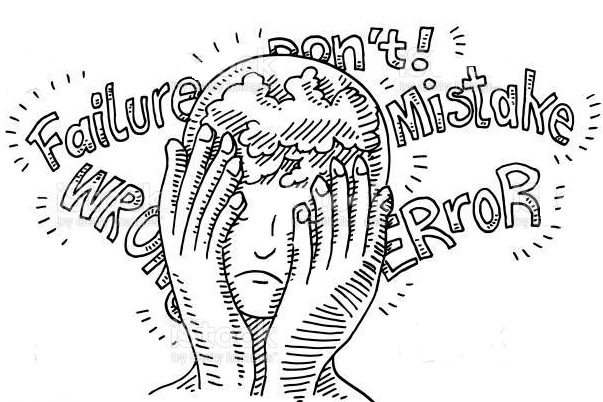¡Me he quedado en blanco!
«One language sets you in a corridor for life. Two languages open every door along the way.»
Frank Smith
Imagine the situation: Around a year ago you decided to start taking English lessons again. You have been attending weekly English classes with your teacher (maybe on the Breeze Lingo platform), you watch series in the original version, listen to The Beatles and now you feel ready to take a trip to London and put into practice all the wonderful new words and expressions you have learnt. Except when you leave the airport, stop a taxi and the taxi driver asks “where you going to?” you go completely blank….Sound familliar?
This is an extremely common issue that many people experience when learning a second language. In fact it is so common it even has a name, which ironically is almost impossible to say in English. It is known as Xenoglossophobia, but let´s just call it “going blank” for now!
So, why do so many people go blank when speaking English? Well, researchers have identified several factors such as;
+ Lack of opportunities to practice English at home,
+ Cultural differences, for example worrying about sounding polite,
+ Problems with the English language itself, for instance, the complicated pronunciation, prepositions, phrasal verbs….
But after talking to our students we have found out that the biggest single worry that people have is making mistakes and sounding silly when they are speaking.
This lack of self-confidence experienced by many non-native speakers is very common. A lack of self-confidence impacts our ability to speak another language, causing us to go blank and feel like we have forgotten everything we have ever learnt. However, with a little bit of confidence, it is amazing what we can achieve! I am sure you have been in the situation where after drinking a few beers you suddenly become bilingual?!

So, lovely blog readers, to help you feel more confident when you need to speak English, I decided to ask some native English speakers what they thought about the following question:
“When speaking to a foreign person, do you appreciate that they try speaking English, even if they make a lot of mistakes? Or do you find it uncomfortable and difficult to understand?”
This is what they said:
“I don’t mind at all if people make mistakes when speaking English. I’m just impressed that they are speaking in another language to their native, it puts me to shame. Also, my first (and only) language is English and I make mistakes (more often than not) through laziness, and so not always grammatically correct myself”
“I think it’s great if people have a go! They are normally better than they think and it’s good to be able to help a little if they are struggling. Isn’t it one of the best ways to learn a language? ”
“I would always be delighted if people tried to speak English to me, no matter how many mistakes”
“I definitely appreciate it and in all instances, their English is going to be better than my attempts to speak Spanish/French – I am grateful when they try, I think it actually makes it less awkward!”
“I much prefer someone to ‘have a go’. We (the British people), as a nation, are renowned for being poor at languages and are used to hearing all sorts of dialects and accents. We are also very good at understanding mispronunciations and usually go out of our way to help or assist”
So you see, that even if you do make some mistakes when asking for directions or ordering a pint of beer with your fish and chips, you know that the local people are not thinking “Oh no! He should be using the present perfect instead of the past simple”. In fact, I´m pretty sure that most native English speakers don´t even know what the present perfect and past simple are! What they are really thinking is “I really appreciate that this person is trying to speak English”.
I hope this helps you feel more confident next time you need to speak English. If you have any experiences like this that you would like to share with us, feel free to write a comment below and make sure you share this article with anyone you think needs to feel more confident when speaking English.
Happy Learning!






